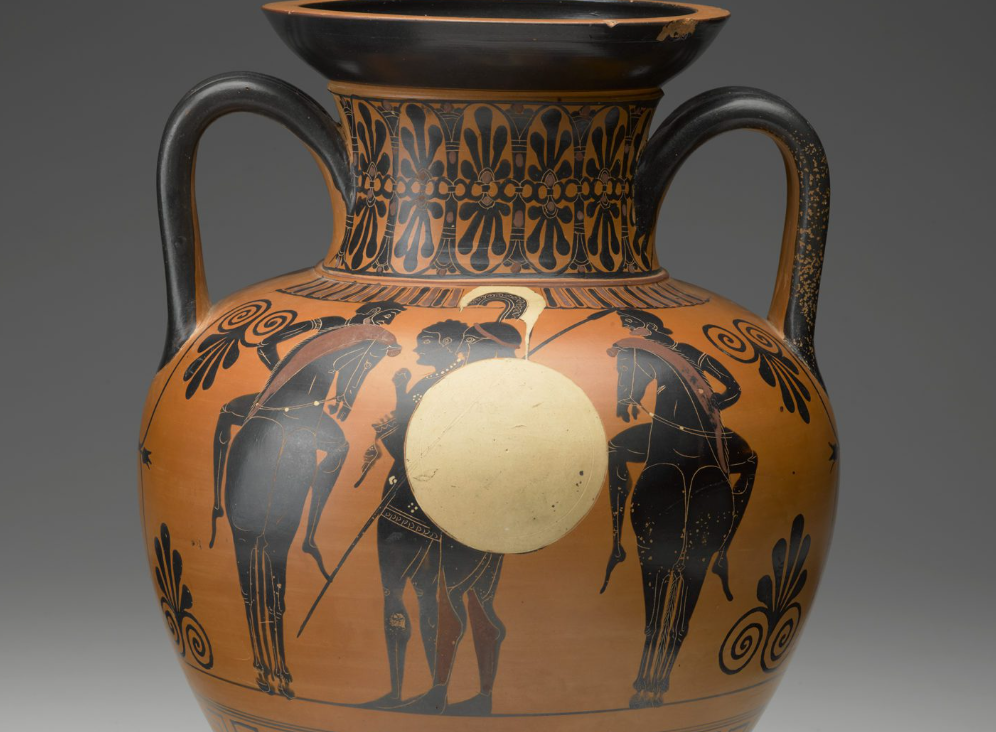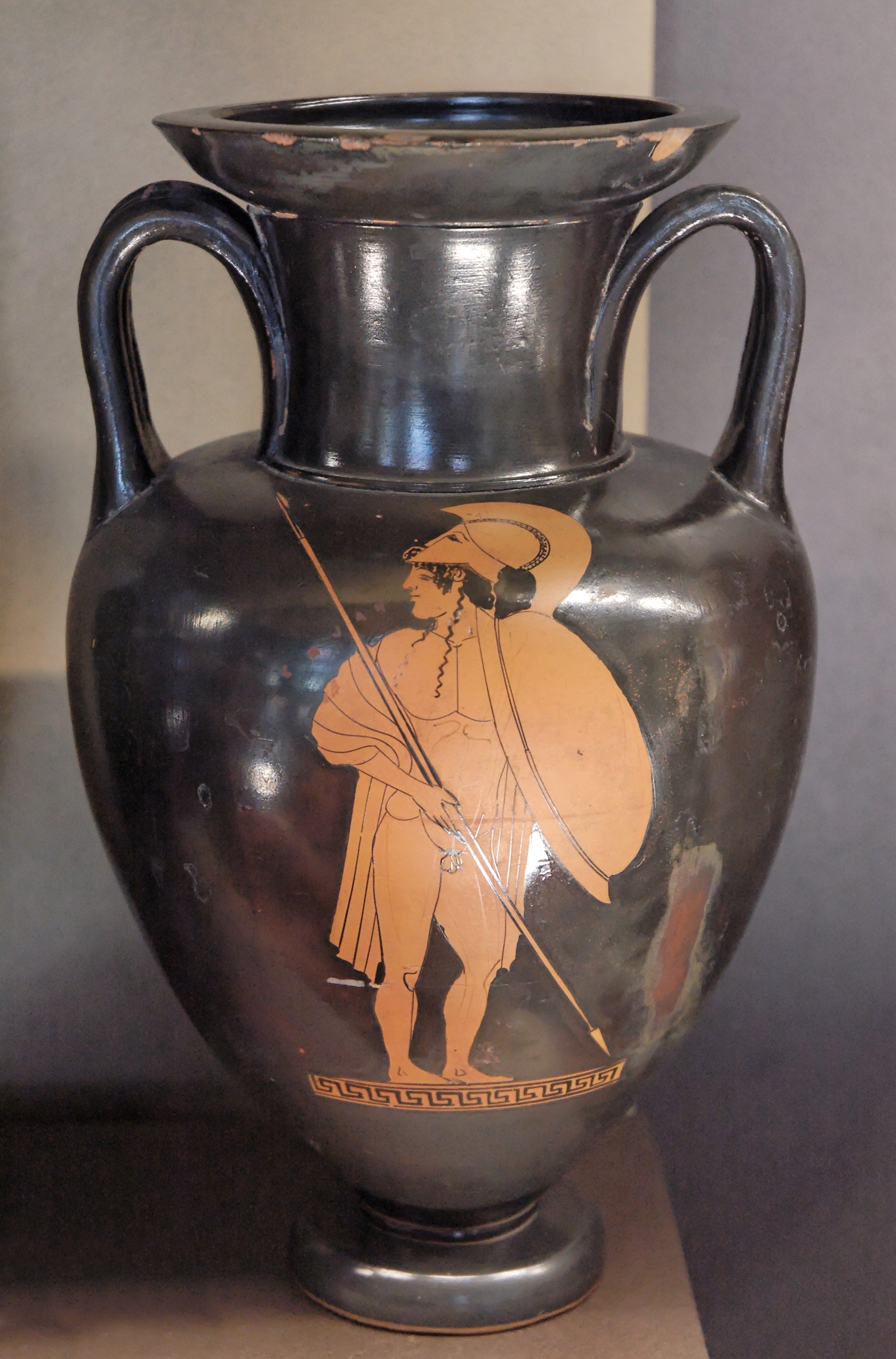|
Aithiopes
The ''Aithiopes'' is a tragedy by the 5th century BCE Athenian playwright Sophocles that survives only in fragments. Content Jebb et al. believe that the ''Aithiopes'' by Sophocles ought to be identified with his play the ''Memnon''. Lloyd-Jones says that the plot, though almost entirely unknown, is probably based on the story of the Ethiopian prince Memnon who was killed by Achilles, after having himself killed Nestor's son Antilochus in the Trojan War, which was described in the “lost post-Homeric epic ''Aethiopis''” Lloyd-Jones 1996 p. 23 Date Unfortunately, no date more precise than the 5th century BC can as yet be reliably ascribed to the writing or production of the play. Extant Sources There are a number of sources for the play listed by Jebb and Lloyd-Jones; these include, among others Athenaeus, '' Deiphosophists'' 3, 122B, Photius Galeanus ''Lex.'' p. 22, and Photius Photius I of Constantinople (, ''Phōtios''; 815 – 6 February 893), also spelled ''Ph ... [...More Info...] [...Related Items...] OR: [Wikipedia] [Google] [Baidu] |
Sophocles
Sophocles ( 497/496 – winter 406/405 BC)Sommerstein (2002), p. 41. was an ancient Greek tragedian known as one of three from whom at least two plays have survived in full. His first plays were written later than, or contemporary with, those of Aeschylus and earlier than, or contemporary with, those of Euripides. Sophocles wrote more than 120 plays, but only seven have survived in a complete form: '' Ajax'', '' Antigone'', '' Women of Trachis'', '' Oedipus Rex'', '' Electra'', '' Philoctetes'', and '' Oedipus at Colonus''. For almost fifty years, Sophocles was the most celebrated playwright in the dramatic competitions of the city-state of Athens, which took place during the religious festivals of the Lenaea and the Dionysia. He competed in thirty competitions, won twenty-four, and was never judged lower than second place. Aeschylus won thirteen competitions and was sometimes defeated by Sophocles; Euripides won four.. The most famous tragedies of Sophocles feature Oedip ... [...More Info...] [...Related Items...] OR: [Wikipedia] [Google] [Baidu] |
Tragedy
A tragedy is a genre of drama based on human suffering and, mainly, the terrible or sorrowful events that befall a tragic hero, main character or cast of characters. Traditionally, the intention of tragedy is to invoke an accompanying catharsis, or a "pain [that] awakens pleasure,” for the audience. While many cultures have developed forms that provoke this paradoxical response, the term ''tragedy'' often refers to a specific Poetic tradition, tradition of drama that has played a unique and important role historically in the self-definition of Western culture, Western civilization. That tradition has been multiple and discontinuous, yet the term has often been used to invoke a powerful effect of cultural identity and historical continuity—"the Classical Athens, Greeks and the Elizabethan era, Elizabethans, in one cultural form; Hellenistic civilization, Hellenes and Christians, in a common activity," as Raymond Williams puts it. Originating in the theatre of ancient Greece ... [...More Info...] [...Related Items...] OR: [Wikipedia] [Google] [Baidu] |
Athenian
Athens ( ) is the Capital city, capital and List of cities and towns in Greece, largest city of Greece. A significant coastal urban area in the Mediterranean, Athens is also the capital of the Attica (region), Attica region and is the southernmost capital on the European mainland. With its urban area's population numbering over 3.6 million, it is the List of urban areas in the European Union, eighth-largest urban area in the European Union (EU). The Municipality of Athens (also City of Athens), which constitutes a small administrative unit of the entire urban area, had a population of 643,452 (2021) within its official limits, and a land area of . Athens is one of the List of oldest continuously inhabited cities, world's oldest cities, with its recorded history spanning over 3,400 years, and its earliest human presence beginning somewhere between the 11th and 7th millennia BCE. According to Greek mythology the city was named after Athena, the ancient Greek goddess of wisdom, ... [...More Info...] [...Related Items...] OR: [Wikipedia] [Google] [Baidu] |
Memnon (mythology)
In Greek mythology, Memnon (; Ancient Greek: Μέμνων, ) was a king of Aethiopia and son of Tithonus and Eos. During the Trojan War, he brought an army to Troy's defense and killed Antilochus, Nestor (mythology), Nestor's son, during a fierce battle. Nestor challenged Memnon to a fight, but Memnon refused, being there was little honor in killing the aged man. Nestor then pleaded with Achilles to avenge his son's death. Despite warnings that soon after Memnon fell so too would Achilles, the two men fought. Memnon drew blood from Achilles, but Achilles drove his spear through Memnon's chest, sending the Aethiopian army running. The death of Memnon echoes that of Hector, another defender of Troy whom Achilles also killed out of revenge for a fallen comrade, Patroclus. After Memnon's death, Zeus was moved by Eos' tears and granted him immortality. Memnon's death is related at length in the lost epic ''Aethiopis'', likely composed after ''The Iliad'', circa the 7th century Befo ... [...More Info...] [...Related Items...] OR: [Wikipedia] [Google] [Baidu] |
Achilles
In Greek mythology, Achilles ( ) or Achilleus () was a hero of the Trojan War who was known as being the greatest of all the Greek warriors. The central character in Homer's ''Iliad'', he was the son of the Nereids, Nereid Thetis and Peleus, king of Phthia and famous Argonauts, Argonaut. Achilles was raised in Phthia along with his childhood companion Patroclus and received his education by the centaur Chiron. In the ''Iliad'', he is presented as the commander of the mythical tribe of the Myrmidons. Achilles' most notable feat during the Trojan War was the slaying of the Trojan prince Hector outside the gates of Troy. Although the death of Achilles is not presented in the ''Iliad'', other sources concur that he was killed near the end of the Trojan War by Paris (mythology), Paris, who shot him with an arrow. Later legends (beginning with Statius' unfinished epic ''Achilleid'', written in the first century CE) state that Achilles was invulnerable in all of his body except ... [...More Info...] [...Related Items...] OR: [Wikipedia] [Google] [Baidu] |
Nestor (mythology)
In Greek mythology, Nestor of Gerenia (, ''Nestōr Gerēnios'') was a legendary king of Pylos. He is a prominent secondary character in Homer's ''Iliad'' and ''Odyssey'', where he appears as an elderly warrior who frequently offers advice to the other characters. The Mycenaean Greece, Mycenaean-era palace at Pylos is known as the ''Palace of Nestor'', though there is no evidence that he was an actual person. Description In the account of Dares Phrygius, Dares the Phrygian, Nestor was illustrated as "... large, broad and fair. His nose was long and hooked. He was a wise adviser." Family Nestor was the son of King Neleus of Pylos and Chloris of Pylos, Chloris, daughter of King AmphionBibliotheca (Pseudo-Apollodorus), Apollodorus, 1.9.9; Scholia on Homer, ''Odyssey'' 11.281 citing Pherecydes of Athens, Pherecydes of Orchomenus (Boeotia), Orchomenus. Otherwise, Nestor's mother was called Polymede. His wife was either Eurydice of Pylos, Eurydice or Anaxibia; their children inc ... [...More Info...] [...Related Items...] OR: [Wikipedia] [Google] [Baidu] |
Antilochus
In Greek mythology, Antilochus (; Ancient Greek: Ἀντίλοχος ''Antílokhos'') was a prince of Pylos and one of the Achaeans in the Trojan War. He was the youngest prince to command troops. Family Antilochus was the son of King Nestor either by Anaxibia or Eurydice. He was the brother to Thrasymedes, Pisidice, Polycaste, Perseus, Stratichus, Aretus, Echephron and Peisistratus. Mythology The ''Iliad'' tells of Antilochus' actions during the Trojan War. One of the suitors of Helen, Antilochus accompanied his father Nestor and his brother Thrasymedes to the war. When fighting there resumed after the aborted duel of Paris and Menelaus, Antilochus was first to kill a Trojan (namely Echepolus). Antilochus was distinguished for his beauty, swiftness of foot, and skill as a charioteer. Though the youngest among the Greek princes, he commanded the Pylians in the war and performed many deeds of valour. He was a favorite of the gods and a close friend of Achilles.Philostrat ... [...More Info...] [...Related Items...] OR: [Wikipedia] [Google] [Baidu] |
Trojan War
The Trojan War was a legendary conflict in Greek mythology that took place around the twelfth or thirteenth century BC. The war was waged by the Achaeans (Homer), Achaeans (Ancient Greece, Greeks) against the city of Troy after Paris (mythology), Paris of Troy took Helen of Troy, Helen from her husband Menelaus, king of Sparta. The war is one of the most important events in Greek mythology, and it has been Epic Cycle, narrated through many works of ancient Greek literature, Greek literature, most notably Homer's ''Iliad''. The core of the ''Iliad'' (Books II – XXIII) describes a period of four days and two nights in the tenth year of the decade-long siege of Troy; the ''Odyssey'' describes the journey home of Odysseus, one of the war's heroes. Other parts of the war are described in a Epic Cycle, cycle of epic poems, which have survived through fragments. Episodes from the war provided material for Greek tragedy and other works of Greek literature, and for Latin literature, ... [...More Info...] [...Related Items...] OR: [Wikipedia] [Google] [Baidu] |
Athenaeus
Athenaeus of Naucratis (, or Nαυκράτιος, ''Athēnaios Naukratitēs'' or ''Naukratios''; ) was an ancient Greek rhetorician and Grammarian (Greco-Roman), grammarian, flourishing about the end of the 2nd and beginning of the 3rd century AD. The ''Suda'' says only that he lived in the times of Marcus Aurelius, but the contempt with which he speaks of Commodus, who died in 192, implies that he survived that emperor. He was a contemporary of Adrantus. Athenaeus himself states that he was the author of a treatise on the ''thratta'', a type of fish mentioned by Archippus (poet), Archippus and other comic poets, and of a history of the Syrian kings. Both works are lost. Of his works, only the fifteen-volume ''Deipnosophistae'' mostly survives. The ''Deipnosophistae'' The ''Deipnosophistae'', which means 'dinner-table philosophers', survives in fifteen books. The first two books, and parts of the third, eleventh and fifteenth, are extant only in epitome, but otherwise the w ... [...More Info...] [...Related Items...] OR: [Wikipedia] [Google] [Baidu] |
Photius Galeanus
Photius I of Constantinople (, ''Phōtios''; 815 – 6 February 893), also spelled ''Photius''Fr. Justin Taylor, essay "Canon Law in the Age of the Fathers" (published in Jordan Hite, T.O.R., and Daniel J. Ward, O.S.B., "Readings, Cases, Materials in Canon Law - A Textbook for Ministerial Students, Revised Edition" ollegeville, Minn., The Liturgical Press, 1990, p. 61 (), was the Ecumenical Patriarch of Constantinople from 858 to 867 and from 877 to 886. He is recognized in the Eastern Orthodox Church as Saint Photius the Great. Photius I is widely regarded as the most powerful and influential church leader of Constantinople subsequent to John Chrysostom's archbishopric around the turn of the fifth century. He is also viewed as the most important intellectual of his time – "the leading light of the ninth-century renaissance". He was a central figure in both the conversion of the Slavs to Christianity and the Photian schism, and is considered " e great systematic compiler o ... [...More Info...] [...Related Items...] OR: [Wikipedia] [Google] [Baidu] |





